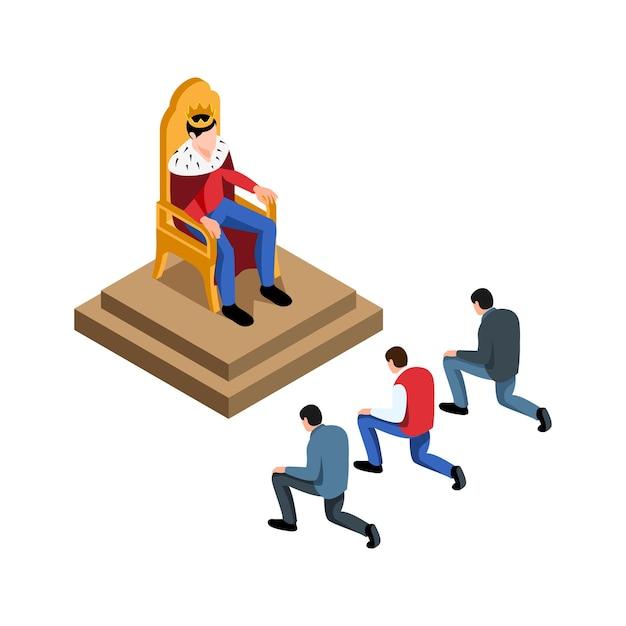If you’re considering filing a class action lawsuit, you might be wondering exactly how many people you need to get involved in the case. The answer to this question can vary depending on a number of factors, including the specific laws of the state or country where the lawsuit is being filed, as well as the nature of the case itself.
In this blog post, we’ll explore some of the key considerations when it comes to determining how many people are required for a class action lawsuit. We’ll also take a closer look at some other important questions, like how much you can expect to earn from a successful class action lawsuit and what percentage of these cases actually result in a victory for the plaintiffs. So, let’s dive in!
How Many People are Needed for a Class Action Lawsuit
If you’re planning to file a class action lawsuit, the first question that comes to mind is how many people are needed to get the ball rolling. The answer is, it depends. There are no hard and fast rules, but most class action lawsuits need a minimum of 40 members to be certified.
The “Numerosity” Requirement
Under the Federal Rules of Civil Procedure, a class action lawsuit can only be filed if the “numerosity” requirement is met. This means that the class must be so numerous that joinder of all members is impracticable. The number of potential plaintiffs also depends on the type of lawsuit.
Smaller Classes
If you’re planning to file a lawsuit for a smaller class, the number of potential plaintiffs required may be less than the “numerosity” requirement. However, it’s always best to consult with a class action attorney to determine the number of members required for your particular case.
Too Many People
On the other hand, if the potential class is too large, it may be difficult to manage. The court may even divide the case into smaller groups or subclasses. It’s crucial to keep in mind that the more members there are, the more complex the case becomes, and the more time and resources required to bring the case to a settlement or verdict.
In conclusion, the number of people required for a class action lawsuit depends on the type of lawsuit and other factors specific to the case. It’s always best to consult with a class action attorney to determine the number of members required for your particular case. And, don’t forget the “numerosity” requirement—remember to have enough members to make the class impracticable to join.
Who usually wins in a class action lawsuit
Let’s be honest; no one wants to go through a class-action lawsuit. It’s time-consuming, emotionally exhausting, and can sometimes end up being a total waste of time. But, if you ever find yourself in one, you would definitely want to know the odds of winning, right?
Well, the truth is, it’s tough to predict who exactly will win a class-action lawsuit. It all depends on the specific details of the case. But here’s what we do know:
History can help predict the future.
One thing that can give an idea of who might win is looking back at history. Generally, smaller businesses tend to be more successful in these lawsuits than larger ones. The reason being is that they’re not as well equipped to handle the legal battle expenses as a bigger corporation may be. So, if you’re part of a lawsuit against a mom and pop shop, your chances of winning may be higher than a case against a big corporation.
The settlement payouts.
It’s also worth noting that sometimes, it’s not necessarily about “winning” the case but settling it. In these cases, the lawyers may be more apt to settle than risk going to trial, so that they secure a payout for the plaintiffs. Generally, the more settlement cash that’s been awarded in the past, the higher the likelihood of a settlement vs. an outright win in court.
Don’t forget the popular vote.
One significant thing that could determine the outcome of the case is the public opinion. If the issue at hand is something that resonates with people and has garnered a lot of media attention, companies may be more willing to settle to avoid further damage to their reputation. In contrast, if it’s an issue that the general public isn’t aware of, companies may feel that they can get away with a trial versus a settlement.
So, who exactly wins in a class-action lawsuit? It’s hard to say. While history proves helpful in predicting the outcome, it could still be anyone’s game. However, one thing we know for sure is that the lawyers will always come out victorious. It’s not all bad, though, as long as your lawyer is worth their salt, you could end up with a sizeable payout too. But hopefully, you’ll never have to find out.
Average Class Action Lawsuit Payout per Person
Have you ever wondered how much money you can make from a class action lawsuit? Well, you are not alone. The average payout for a class action lawsuit varies depending on several factors, such as the size of the settlement, the number of plaintiffs involved, and the amount of damages claimed.
Factors that Determine the Average Class Action Lawsuit Payout per Person
The average class action lawsuit payout per person can greatly vary depending on the size of the settlement. The larger the settlement, the more money is available to be distributed among the plaintiffs. However, the cost of the litigation, legal fees, and other expenses also reduce the size of the payout.
Another factor that determines the payout is the number of plaintiffs involved. The more plaintiffs involved in the class action lawsuit, the more the settlement pool is divided, thus reducing the payout per person.
The amount of damages claimed is also a significant factor that determines the payout. If the damages claimed are high, the settlement pool must be large enough to cover all the damages and accrued interests.
What is the Average Payout per Person
According to a survey by NERA Economic Consulting, the average payout for all class action settlements in 2020 was $54 million. However, the average payout per person was only $88. This amount may seem small, but it is because there were many plaintiffs, and the settlement pool was divided among all of them.
This amount also varies depending on the case, and some settlements may have higher payouts. For instance, in 2016, Volkswagen settled a class action lawsuit for $14.7 billion, with each affected owner receiving $5,100 to $10,000 depending on the value of their car.
In conclusion, the average payout for a class action lawsuit varies widely depending on several factors. The size of the settlement, the number of plaintiffs involved, and the amount of damages claimed are significant factors that determine the payout per person. However, it is essential to remember that class action lawsuits are not a get-rich-quick scheme. The average payout per person may seem small, but it helps to hold corporations accountable for their actions and provide justice to the affected individuals.
How Much Will It Cost You to Start a Class Action Lawsuit
So, you’ve been wronged by a corporation. You’ve rounded up some equally wronged individuals, found a lawyer willing to take your case, and are ready to fight back in a class action lawsuit. But, before you can get started, there’s one question on your mind: how much is this going to cost?
Legal Representation
One of the biggest expenses in starting a class action lawsuit is legal representation. Unfortunately, class action lawsuits can be quite complex, and require a lot of legal expertise. This means that the legal fees can add up quickly.
Court Fees
In addition to the legal fees, you’ll also need to pay court fees. These fees can vary depending on the jurisdiction you’re in and the specific requirements of your case. They can include filing fees, service fees, and motion fees.
Time and Effort
Let’s not forget about the time and effort that goes into starting a class action lawsuit. As the lead plaintiff, you’ll need to devote a significant amount of time and effort to the case. This can mean taking time off work, coordinating with other plaintiffs, and staying on top of all the details.
Other Expenses
Finally, there may be other expenses that come up during the course of the lawsuit. For example, you may need to pay for expert witnesses, travel expenses, or other costs associated with gathering evidence or preparing for trial.
While there’s no set cost for starting a class action lawsuit, it’s safe to say that it can be an expensive undertaking. But, if you’ve been wronged by a corporation, it may be worth it to fight back and seek justice. Just be prepared for the costs that come with it.
What’s the Winning Percentage of a Class Action Lawsuit
You might be wondering how often you strike gold with class action lawsuits. Well, we have a rather pessimistic answer for you: not very often.
The Odds Are (Unfortunately) Not in Your Favor
A class action lawsuit is essentially a legal battle between a small group of people and a giant corporation, so it’s no wonder the percentage of won cases is very low. The numbers are discouraging- only 5% of class action lawsuits actually win! The other 95% fall into settlement, dismissal, or the case may continue as individual lawsuits.
Factors that Determine Success Rate
The success rate for these cases can depend on a few factors. The circumstances of the case play a significant role in winning. If the lawsuit involves a category that the courts tend to favor, the odds might be slightly in your favor. Similarly, the size of the class and the strength of the attorney can impact the chances of winning as well. But even in the best of circumstances, the success rate is still pretty damn low.
Why It’s So Hard to Win
Well, for starters, class action lawsuits are complicated. There are countless plaintiffs and motions involved, which takes a ton of time and resources. The burden of proof for each one of the plaintiffs is quite high. So, naturally, this makes it difficult to prove a winning case.
In essence, winning a class action lawsuit is like winning the lottery—it can happen, but the odds are not in your favor. However, don’t be discouraged. If you believe in your case, pursue it. After all, it’s better to fight for justice than to regret it later!
How Many People Do You Need for a Class Action Lawsuit in California
When it comes to class action lawsuits, one of the most commonly asked questions is, “how many people do I need to file a class action lawsuit in California?” Well, folks, the answer is not as straightforward as you may have initially thought.
The Basics
Firstly, let’s start with the basics. In California, class actions can be filed by one or more plaintiffs who represent a larger group of people who have been similarly affected by a defendant’s actions. The goal is to consolidate multiple claims into one lawsuit to save time, resources and money for everyone involved.
Numerical Requirements
Now, to answer the question at hand, the number of people required to file a class action lawsuit in California is not well defined. While it’s true that there is no minimum number of plaintiffs required to bring a class action, the more plaintiffs you have, the better your chances of success.
Too Many Plaintiffs
But wait, there’s more. When it comes to the number of plaintiffs, too many of them can also be a bad thing. If there are too many plaintiffs in a class action lawsuit, it can be difficult to coordinate and manage, leading to chaos in the courtroom. Additionally, it can dilute the value of each individual claim, making it less likely for plaintiffs to get the compensation they deserve.
The Perfect Number
So, what is the perfect number of plaintiffs for a class action lawsuit in California? Well, that depends on the unique circumstances of each case. Generally speaking, a class action lawsuit can be successful with as few as ten plaintiffs, but it’s not uncommon to see class actions with hundreds or even thousands of plaintiffs.
In conclusion, the number of people required to file a class action lawsuit in California is not well defined. While there’s no minimum number required, having too many plaintiffs can make the case difficult to manage. In general, the perfect number of plaintiffs depends on the unique circumstances of the case. So, if you’re thinking of filing a class action lawsuit, be sure to consult with an experienced California attorney to determine the optimal number of plaintiffs for your case.



